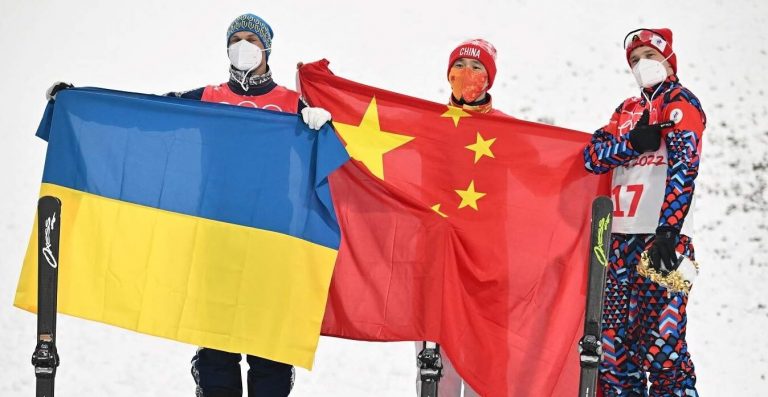Russia’s invasion of Ukraine has overturned the post-1945 international system.
Attention has focused on the sea change in European attitudes to security threats, the defence spending that Russia’s aggression has produced, and the sobering challenge Russia’s invasion poses to accepted international rules and norms. But the Ukraine crisis has wider implications, affecting the Indo-Pacific region.
China
First up, Moscow is counting on China to provide it with cover – politically and economically. The closer alignment between Russia and China is underpinned by political affinities, economic complementarities and foreign policy convergences – especially a shared antipathy to US primacy, and a wish to reshape the global order more to their liking. The joint statement emerging from the Putin-Xi summit last month claimed the Russia-China strategic partnership knew “no limits”.
Beijing’s abstention on key UN votes on Ukraine is all Moscow needs and expects from its close strategic partner. It means Beijing has Russia’s back – at least for now. China offers an important alternative market for Russia’s energy and raw materials – although there are logistical constraints to this – and a source of sanctioned technology.
While tilting towards Russia, Beijing is trying to tread a cautious line, showing understanding for Russia’s security concerns but stopping short of endorsing Moscow’s actions.
The downside for Moscow, though, is that it makes Russia even more dependent on China, skewing an already asymmetrical relationship. Yet it remains unclear whether and how China’s position on Ukraine may evolve.
While tilting towards Russia, Beijing is trying to tread a cautious line, showing understanding for Russia’s security concerns but stopping short of endorsing Moscow’s actions. Beijing will not welcome the disruption to global markets caused by Russia’s aggression, especially rising prices for energy and raw material imports on which the Chinese economy depends.
And what lessons will Beijing take from the war in Ukraine? The demonstration effect of the strength, unity and speed of the Western response, the severe impact of sweeping sanctions, and Russia’s resulting forced economic decoupling from much of the global economy will all give Beijing pause for thought. So too will the setbacks experienced by the Russian military in Ukraine, despite their on-paper superiority across most capabilities.

India
Second, New Delhi’s tacit support for Russia – welcomed by Moscow as “balanced and independent” – is unsurprising. Yet, in truth, New Delhi is in a strategic quandary. On the one hand, India enjoys a historical “special and privileged strategic partnership” with Russia – buttressed increasingly by close relations between Putin and Modi.
Moscow has been India’s main arms supplier for decades, and remains crucial for new systems, logistical support and spare parts. Energy ties are substantial and growing, with Indian investment in Russian oil and gas development complementing Russian involvement in India’s domestic refining and petrochemical sector. Strategically, India values ties with Moscow as a hedge against Beijing.
For its part, Russia is suspicious of India’s moves to intensify economic and security cooperation with the United States, notably through the Quadrilateral Security Dialogue.
Yet, New Delhi is wary of the greater convergence between Russia and China, and of Moscow’s recent steps to upgrade ties with Pakistan – intended no doubt as a signal to India not to take Russia for granted. For its part, Russia is suspicious of India’s moves to intensify economic and security cooperation with the United States, notably through the Quadrilateral Security Dialogue.
Uncertainty over the India-US relationship is based on whether or not Washington will impose CAATSA (Countering America’s Adversaries Through Sanctions Act) on New Delhi’s current acquisition of Russian S-400 missile defence systems (as it did with Turkey). There may also be implications for India’s supply of BrahMos missiles (using Russian technology) to the Philippines.
Global commodities
Next, the disruption and price shocks for global commodity supplies – oil, grain, raw materials – will hurt Asian economies and consumers. This applies not only to larger states like China and India, but much of Southeast Asia, too.
Indonesia could be particularly badly hit, with 25 per cent of its grain coming from Russia and Ukraine, while 50 per cent of its fertiliser comes from Russia and Belarus. Russian energy firms are involved in big joint ventures in key ASEAN economies, notably Vietnam (Zarubezhneft) and Indonesia (Rosneft).
Regional cooperation
In terms of Asia-Pacific regional cooperation processes, questions may be asked about the credibility of Russia’s continued participation in the ASEAN Regional Forum (ARF) and East Asia Summit (EAS) – especially given that Russia’s aggression against Ukraine is hardly consistent with its obligations under the terms of its accession to ASEAN’s Treaty of Amity and Cooperation.
The United States
Finally, the prospect of a prolonged and uneasy confrontation between Russia and NATO in Europe means that the United States finds itself, as during the Cold War, squeezed between adversaries on two fronts – in Europe and Asia.
Washington will have been encouraged by the quick and robust support from its close allies and partners in the region, notably Japan, the Republic of Korea, Singapore and Australia. Russia’s actions in Ukraine will likely indirectly accelerate the development of the Quad. Further deepening of the Russia-China strategic partnership will likely put strains on India’s relations with Russia. The CAATSA decision will, though, be crucial in this respect.
Yet, looking ahead, might the Ukraine war, and the weakened sanctions-ravaged Russian economy, degrade Moscow’s power projection capabilities in the medium to longer term? If so, combined with enhanced European defence capabilities – given big projected increases in German and other European NATO defence spending – this could arguably end up facilitating a US pivot to Asia.
Questions and worries aplenty, then, in the uncertain new global disorder ushered in by Putin’s invasion of Ukraine.




















